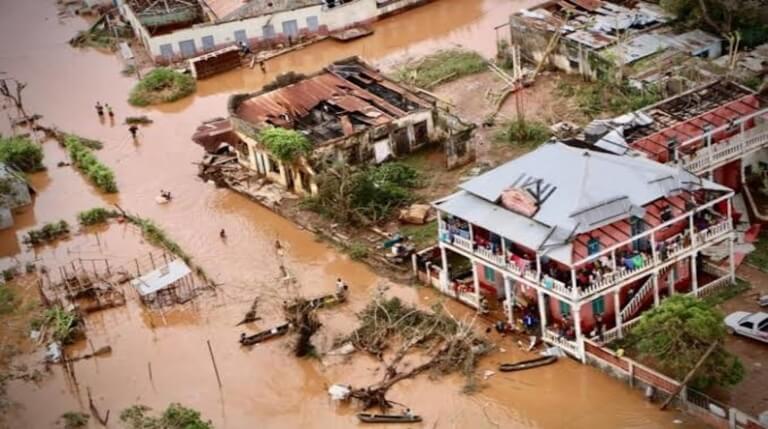
The Impact of Climate Change on Africa or Africans is severe because of adverse direct effects, high agricultural dependence fed by rain, limited capacity to adapt and the un-seriousness of the policy makers at all levels on climate issues. Direct effects vary widely across the continent; some regions are getting wetter, while some other regions in the same continent are getting drier and hotter. Crop yields have been badly hit, the main outcome of the Africa Food Security Leadership Dialogue (AFSLD) held sometime in August 2019 in Kigali, Rwande, was to boost African foods systems adaptation to climate change.

In a report published in June 2020 by world bank group says “Food insecurity in Sub-Sahara Africa has increased since 2014 and puts at risk the delivery of both the SDG goal for zero hunger, Sub-Sahara Africans share of severe food insecurity people reached two 277 million in 2018-22% of the population.

The frequent increase of extreme weather events that has tremendous economic impacts on both human lives, loss of properties worth billions of dollars. The impact of climate change on human health is huge, climate variability and change are the greatest global health threat of the 21st century, with far reaching consequences for human capital accommodation, labour productivity, development, and the economy (IPCC 2018).

Through direct (e.g., floods) and indirect (e.g. social determinants) pathways, climate change contribute to the number of people suffering from injuries, water borne diseases (e.g., malaria, dengue, diarrhea, schistosomiasis), heat stress premature death.

Governments whose role is primarily to provide information, incentives and economic environment to facilitate changes has failed in doing so. Adaption and mitigation has been, impeded by the fragmentation of African governments, no framework on climate change mitigation for the continent, Africa is at the mercy of United Nations climate intervention programmes across the continent and other international assistance, there is a need now to design a climate change adaptation and mitigation framework for the Africa.

Emission from the transport sector are a major contributor to climate change and have a significant impact on air quality, polluted air causes an estimated seven million premature deaths every year. It also has detrimental impacts on climate, biodiversity, ecosystem and the quality of life. The 2020 report of the lancet countdown on health and climate change, responding to converging crises reports that “The changing climate has already produced considerable shifts in the underlying social and environmental determinants of health at the global level.

National, State and Local Governments have failed in carrying out public awareness programmes on adaptation and mitigation, a bulk of the masses are oblivious of climate change and what it does to them. Some years ago countries committed to limit global warming to well below 2C0 as part of the landmark Paris agreement, with no convincing or sustained abatement, resulting in a rise in the global average temperature. The year 2019 was the third warmest year on record in Africa. Globally, the five warmest years have all occurred since 2015, with nine of ten warmest years occurring since 2005.
In a sample of 30 African countries, two-thirds are warming faster than the world as a whole, a trend expected to continue in coming decades. Global, temperature is still rising and Africa in more than one report made by UN, IPCC and other research bodies reports the African continent as the most to be impacted by climate change. As the UN and other world institutions urges governments to comply on pledges made on the Paris accord and take up new ambition on climate action. Africa and African s still suffers and bears the brunt of climate change.
